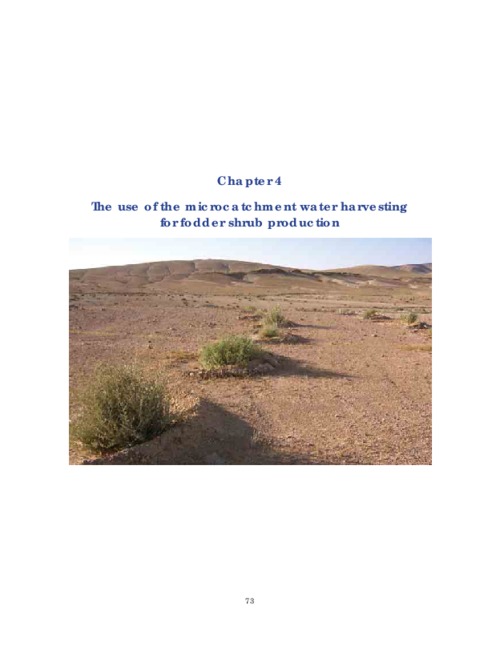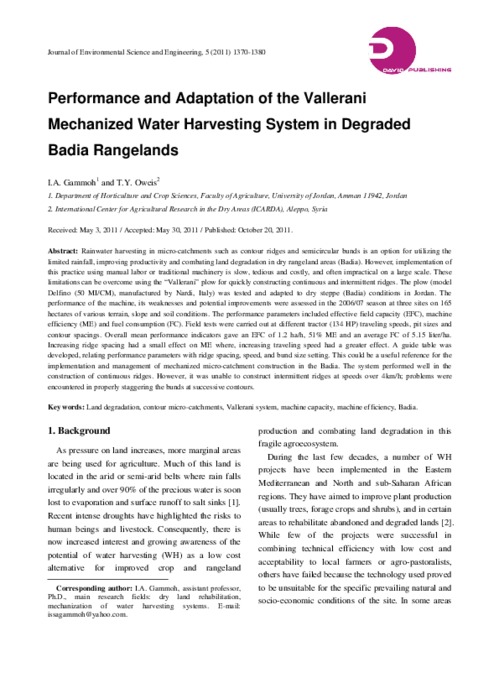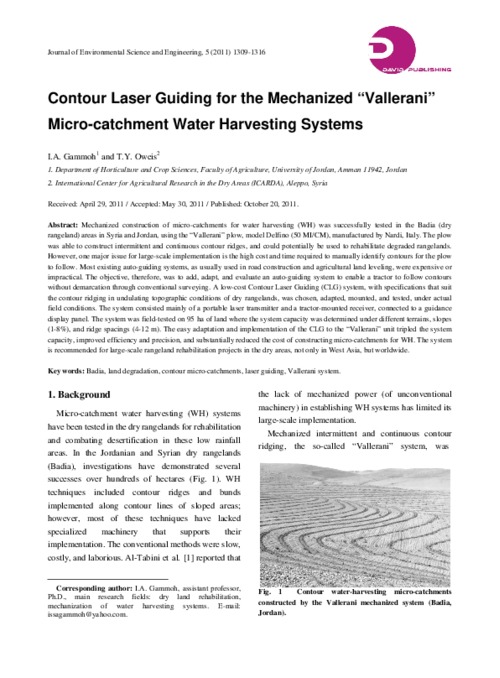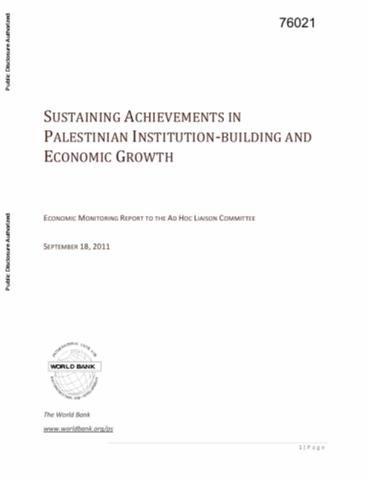In this paper authors present a preliminary approach to the evaluation of policies and projects based on current thinking on cost benefit analysis and real option methodology and the authors' recent work on the same subject. Authors start from the assumption that economic agents undertake…
With annual renewable water resources of less than 150 m3 per capita, Jordan is one of the most water scarce countries of the world. The demand for freshwater resources has been on the increase in the urban sector due to the economic development and population growth. The limited amount of water…
This study aimed at conducting the followings activities:
• To survey and identify the flora at the Mharib watershed (the intervention area of the Badia Benchmark Project),
• to study the effect of microcatchment WH techniques on the soil seed bank compared with the current situation…
The Badia constitutes about 90% of the total land area of Jordan, which is 89 342 km2. Its average annual rainfall is < 200 mm. The area with annual rainfall of 100–200 mm is considered the promising rangeland for rehabilitation. The Badia (part of the rangeland) supplies the livestock…
The Jordan Badia is representative of the vast drier environments of the West Asia and North Africa (WANA) region. Pasture rangeland covers the majority of the Badia, although the vegetative cover is not dense. The vegetation in the Badia includes shrubs and short grasses. Barley is the main…
The rangelands of West Asia and North Africa are the grazing grounds for the Bedouin with their flocks of sheep, goats and camels and are known as al Badia in the Middle East region. Average annual rainfall in the Badia ranges between 50 and 250 mm (Haddad 2006). Despite its scarcity, rainwater…
CropSyst is the crop growth model chosen as a decision tool for the Tadla Benchmark project. CropSyst is a daily time step simulation model. The model was developed to serve as an analytic tool to study the effect of cropping systems management on productivity and the environment. The model…
Rainwater harvesting in micro-catchments such as contour ridges and semicircular bunds is an option for utilizing the limited rainfall, improving productivity and combating land degradation in dry rangeland areas (Badia). However, implementation of this practice using manual labor or traditional…
Mechanized construction of micro-catchments for water harvesting (WH) was successfully tested in the Badia (dry rangeland) areas in Syria and Jordan, using the “Vallerani” plow, model Delfino (50 MI/CM), manufactured by Nardi, Italy. The plow was able to construct intermittent and continuous…
Sustainable economic growth and strong institutions are interlinked, and the present report summarizes recent economic and fiscal developments in West Bank and Gaza (WB&G) as well as providing a broad overview of institutional accomplishments to date. The present report begins by…
Sustainable economic growth and strong institutions are interlinked, and the present report summarizes recent economic and fiscal developments in West Bank and Gaza (WB&G) as well as providing a broad overview of institutional accomplishments to date. The present report begins by…
A report submitted to IFAD on the completion of the Fodder Adoption Project (FAP), (TAG 853-ILRI) programme.











